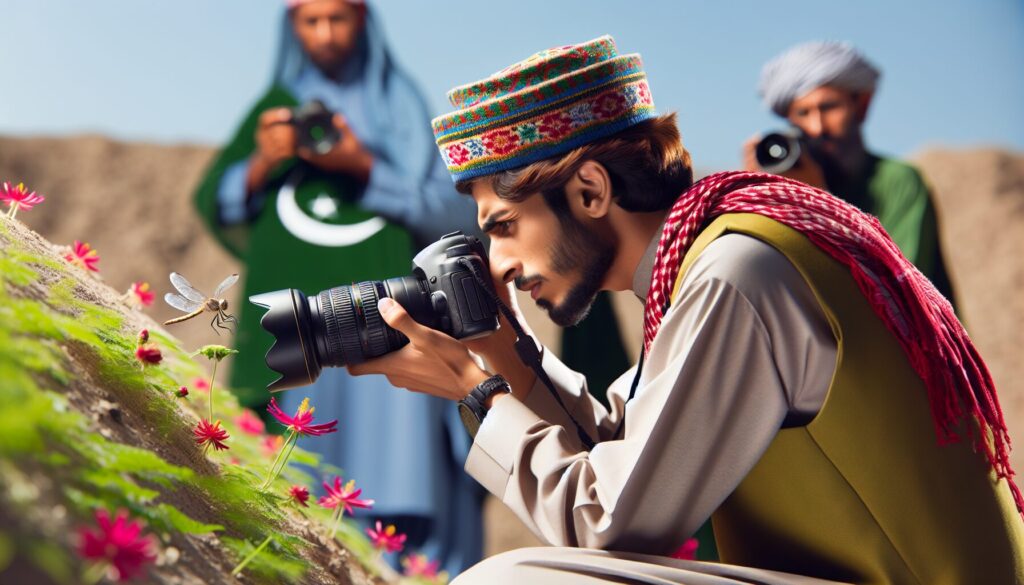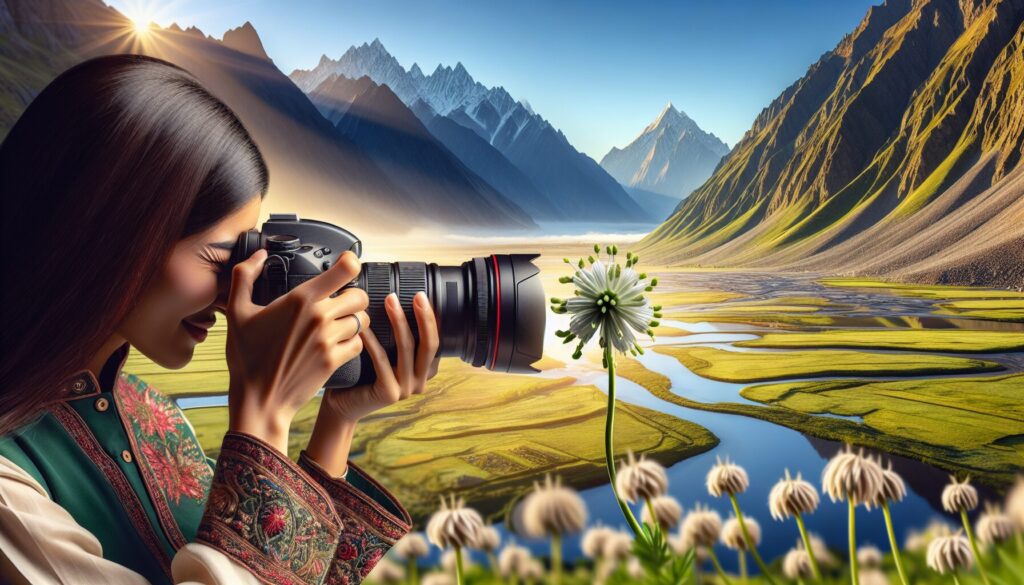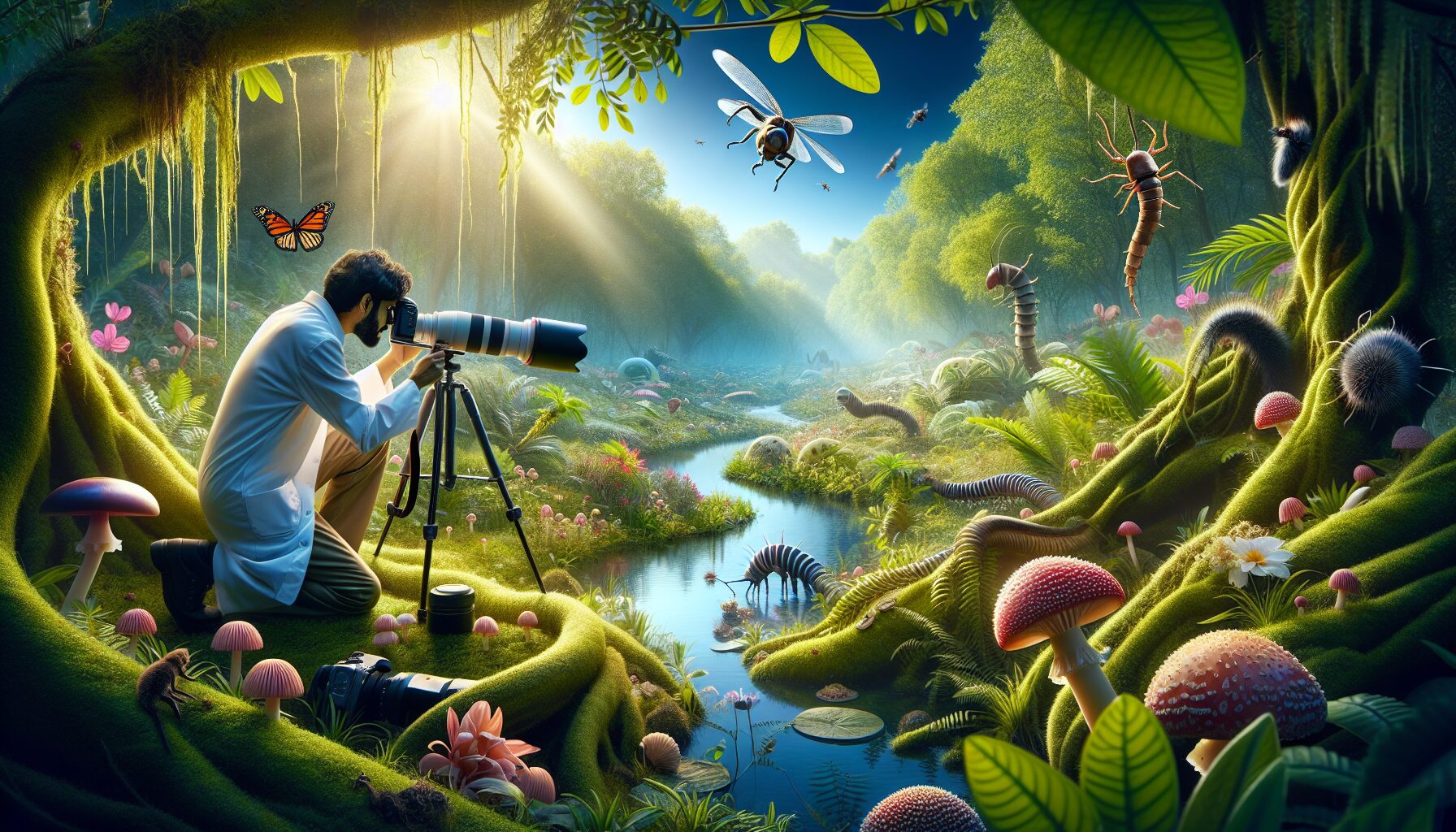Ethical Macro Photography in Pakistan: Respect Nature & Capture with Care is not just a catchy phrase. It’s a commitment to capture the intricate beauty of our natural world while preserving its integrity. In my early days of exploring macro photography, I found myself mesmerized by the vibrant flowers at Shalimar Gardens. However, I learned the importance of respecting nature by avoiding harm to the subjects and their habitats. Whether you’re photographing the delicate patterns on a butterfly’s wings or the textures of a leaf, the key is to be mindful. Always remember, your art should inspire change without disturbing the ecological balance.
Respect Nature: The Role of Photographers in Conservation
As photographers, we hold a unique position in the delicate balance between capturing the world’s beauty and preserving it. In Pakistan, where the natural landscapes are as diverse as they are breathtaking, ethical macro photography is more than a hobby—it’s a responsibility. Our work should inspire change and promote conservation, rather than disturb or exploit our environment.
Understanding Our Impact
Photographers can inadvertently harm nature if they’re not careful. I once visited the serene Deosai National Park, a place where the Himalayan Brown Bear roams. While setting up my equipment, I realized how easy it was to trample over delicate flora. It’s crucial to be mindful of where we step and what we touch.
Practicing Ethical Photography
Here are some tips to ensure that your photography practices are as respectful as possible:
- Stay on designated paths to minimize your impact on the environment.
- Use lenses that allow you to capture subjects from a distance, keeping disturbances minimal.
- Always leave the area cleaner than you found it, picking up any trash you encounter.
One useful tool is the Leave No Trace Center for Outdoor Ethics, which provides guidelines for minimizing environmental impact. By following these principles, photographers can help preserve Pakistan’s natural beauty for future generations.
Remember, your photographs can tell powerful stories that raise awareness and inspire others. By practicing ethical macro photography in Pakistan, you contribute to a larger mission—promoting conservation and ensuring these breathtaking scenes remain unspoiled for those who come after us.
Capture with Care: Techniques for Ethical Macro Photography

When practicing ethical macro photography in Pakistan, it’s essential to balance capturing stunning images and respecting the environment. As an avid macro photographer, I’ve learned that a mindful approach not only preserves nature but also enhances creativity. Here’s how you can achieve this balance.
Be Aware of Your Surroundings
Before you even take out your camera, spend a few moments observing the environment. Whether you’re in the lush landscapes of the Swat Valley or the arid regions of Thar, understanding your surroundings can help you avoid disturbing local flora and fauna. A simple walk around the area can reveal hidden gems without disrupting their natural habitat.
Use the Right Equipment
Choosing the right equipment is crucial for ethical macro photography. A macro lens with a longer focal length lets you capture detailed images from a distance, minimizing your impact on the subject. Consider using tools like a tripod for stability, especially in low-light conditions found in dense forests or during early morning shoots.
Respect Nature
- Never remove plants or insects from their environment for a better shot.
- Stick to marked paths and avoid trampling vegetation.
- Use natural light instead of flash to minimize disturbance.
Organizations like WWF Pakistan offer workshops on ethical wildlife photography, emphasizing the importance of conservation. Following these guidelines not only safeguards our precious ecosystems but also enriches your photographic journey.
In a report by National Geographic, sustainable photography practices lead to more authentic and impactful images. This approach ensures that the beauty of Pakistan’s diverse landscapes can inspire others while preserving them for future generations.
Exploring Pakistan's Biodiversity through Ethical Photography
Discovering Pakistan’s incredible biodiversity through the lens of ethical macro photography is a journey that not only enhances our understanding of nature but also fosters a sense of responsibility towards preserving it. As we explore the diverse ecosystems, from the lush forests of the Himalayan Wildlife Foundation to the arid beauty of the Thar Desert, capturing these moments can inspire change and respect for our natural heritage.
Respectful Photography Practices
Using ethical photography techniques involves more than just snapping a picture. Here are some guidelines to follow:
- Respect Wildlife: Maintain a respectful distance from animals to avoid disturbing their natural behavior.
- Leave No Trace: Ensure you don’t leave behind any waste or disrupt the environment.
- Use Appropriate Gear: Equip yourself with a macro lens that allows you to capture details without getting too close.
On one of my excursions to the stunning landscapes of the Deosai National Park, I witnessed a vibrant butterfly resting on a wildflower. By using a long-focus lens, I captured its intricate wing patterns without invading its space. This practice aligns with the principles of ethical photography and ensures that my presence doesn’t alter the natural beauty I wish to showcase.
For those looking to expand their skills, exploring techniques such as macro and drone photography can offer unique perspectives on Pakistan’s landscapes. For tips on capturing expansive vistas, you might find our guide on utilizing drones for breathtaking aerial shots in Pakistan particularly insightful.
Engaging in ethical macro photography throughout Pakistan not only enriches our appreciation of the natural world but also spreads awareness and encourages conservation efforts. By capturing these fleeting moments with care, we can help preserve the beauty that inspires us all.
Tools and Equipment for Ethical Macro Photography in Pakistan
Embarking on a journey of macro photography in the diverse landscapes of Pakistan calls for the right set of tools. To practice responsible nature photography, one must focus on capturing intricate details while respecting the environment. Whether you’re photographing the vibrant flowers of the Hunza Valley or the unique insects in the Thar Desert, having the right equipment is crucial.
Essential Equipment for Ethical Macro Photography
While many smartphones today come with decent macro capabilities, investing in a dedicated camera and lenses can greatly enhance your results. Here’s a list of essentials:
- Macro Lens: A lens with a focal length between 90mm and 105mm is ideal. It allows you to shoot from a comfortable distance without disturbing the subject.
- Tripod: A sturdy tripod helps maintain focus and stability, especially in low-light conditions.
- Ring Light or Flash: Proper lighting is crucial for capturing details. A ring light or macro flash can highlight subjects without casting shadows.
- Diffuser: To soften harsh sunlight, consider using a diffuser for a more natural look.
Local Resources and Support
Pakistan offers a rich tapestry of flora and fauna, and several organizations are dedicated to its conservation. Engaging with local groups like WWF-Pakistan can provide insights into ethically capturing your subjects while minimizing your footprint. Additionally, workshops offered by Photographers' Society of Pakistan can enhance your skills and knowledge, ensuring your photography respects the fragile ecosystems.
During my own expeditions, I’ve found that patience and respect yield the best results. Waiting quietly for the perfect moment can lead to truly stunning photos, capturing the essence of Pakistan’s natural beauty. By investing in the right tools and respecting nature, we can all contribute to a more sustainable and inspiring photographic community.
Ethical Macro Photography in Pakistan: Inspiring Change through Imagery

In the heart of Pakistan, where breathtaking landscapes and vibrant biodiversity abound, macro photography offers a unique lens into the natural world. This specialized form of photography captures intricate details often overlooked by the naked eye. Beyond showcasing beauty, it serves as a powerful tool for raising awareness about environmental preservation.
Engaging with Local Communities
Incorporating ethical practices in macro photography is vital. By respecting nature, photographers can inspire change while preserving the environment. During a recent visit to The Margalla Hills National Park, I witnessed how local photographers interact with nature. They carefully approach their subjects, ensuring minimal disturbance. This mindful approach fosters a deeper appreciation for biodiversity among onlookers.
Tips for Ethical Macro Photography
For those new to macro photography in Pakistan, consider the following tips to ensure your work is both stunning and ethical:
- Respect Wildlife: Avoid disturbing natural habitats. Use a zoom lens to capture images without getting too close.
- Stay Informed: Learn about the local flora and fauna. This knowledge helps avoid harmful interactions.
- Support Conservation Efforts: Partner with organizations like World Wildlife Fund Pakistan to align your work with conservation goals.
By adopting these practices, photographers in Pakistan can play a pivotal role in environmental advocacy. Ethical macro photography not only showcases the country’s natural beauty but also encourages a collective effort to protect it. Through these images, we can inspire change and foster a deeper connection with the world around us.
Conclusion
Reflecting on the journey of ethical macro photography in Pakistan brings to mind the gentle whispers of nature that have accompanied me through its diverse landscapes. With each trip to the breathtaking valleys of Swat or the rugged terrains of Balochistan, the importance of capturing the beauty of our surroundings with respect and care becomes ever more apparent.
Key Takeaways for Ethical Practices
While exploring the art of macro photography, it’s crucial to prioritize ethical practices. Here’s a concise list to guide your photographic endeavors:
- Respect Wildlife & Flora: Always maintain a respectful distance from subjects, ensuring minimal disturbance.
- Leave No Trace: Carry a small bag to collect any litter you may encounter, preserving the natural beauty for future visitors.
- Use the Right Tools: Consider using eco-friendly equipment and apps like Leave No Trace Center for Outdoor Ethics to enhance your awareness.
During my last visit to the serene beaches of Karachi, I was reminded of the delicate balance between admiration and intrusion. A vivid memory involves capturing the intricate details of a rare butterfly, cautiously ensuring its habitat remained undisturbed. This experience reinforced the need for photographers to act as guardians of the natural world, not merely observers.
Inspiring Change Through Photography
By adopting ethical photography practices, we can inspire others to appreciate and protect the beauty of Pakistan’s landscapes. Sharing our images with stories of conservation, perhaps via platforms like WWF-Pakistan, can amplify awareness and encourage responsible behavior among fellow photographers and nature enthusiasts.
Ultimately, capturing nature responsibly not only enriches our personal experiences but helps preserve the wonders of Pakistan for generations to come. Let us continue to explore, admire, and cherish, ensuring our footprints leave a positive legacy.
Continue Exploring
Unlock the hidden world of macro photography in Pakistan! Dive into our comprehensive guide filled with expert techniques, essential gear, and insider tips to elevate your photography skills.
Frequently Asked Questions
What are the best practices for ethical macro photography in Pakistan's diverse ecosystems?
Ethical macro photography in Pakistan’s diverse ecosystems involves respecting wildlife and habitats, minimizing disturbance, and avoiding damage to natural environments. Photographers should prioritize the well-being of subjects by not handling or displacing them and should use non-invasive techniques to capture images.
How can macro photographers in Pakistan contribute to conservation and inspire environmental change?
Macro photographers in Pakistan can contribute to conservation by raising awareness about biodiversity through their images. By showcasing the intricate beauty of local flora and fauna, photographers can inspire a deeper appreciation for nature and encourage conservation efforts. Additionally, sharing ethical practices can educate others on sustainable photography.
Why is it important to practice ethical macro photography while capturing Pakistan's natural beauty?
Practicing ethical macro photography is crucial in preserving Pakistan’s natural beauty for future generations. It ensures that ecosystems remain undisturbed and species are protected from harm. Ethical practices help maintain the natural balance and integrity of environments, allowing photographers to capture images responsibly and sustainably.


Leave a Reply